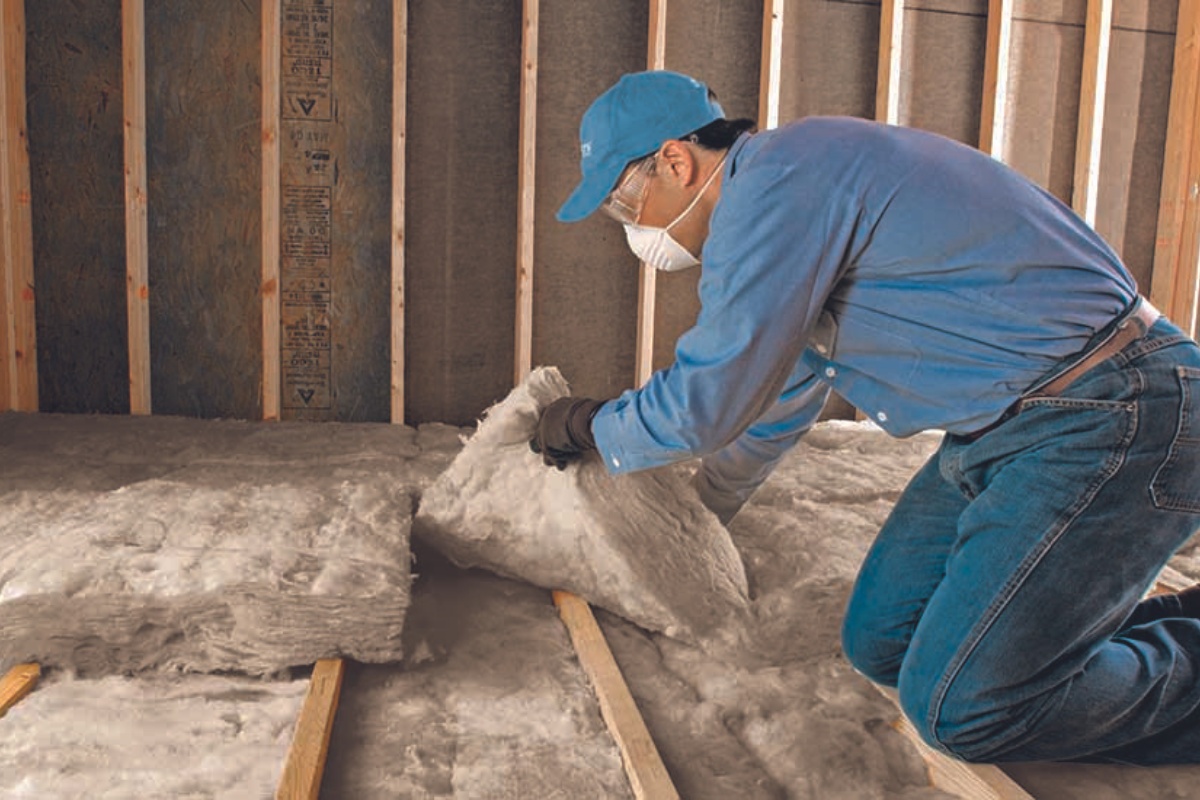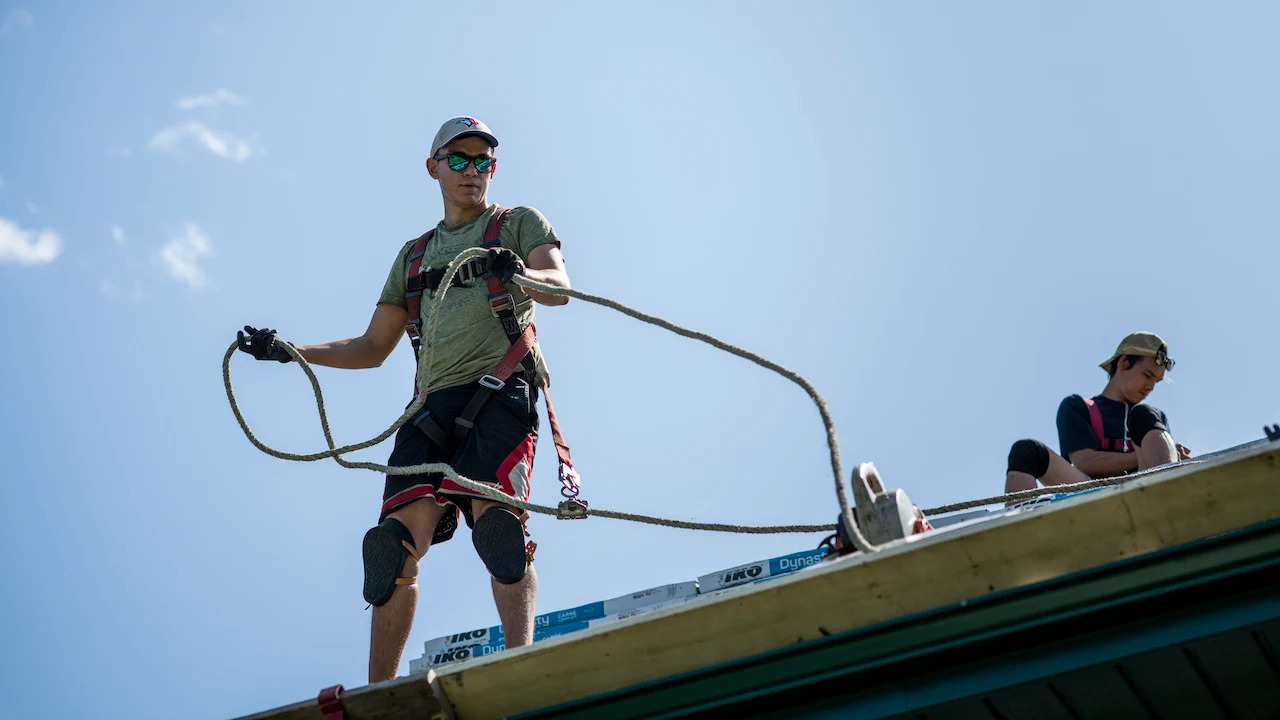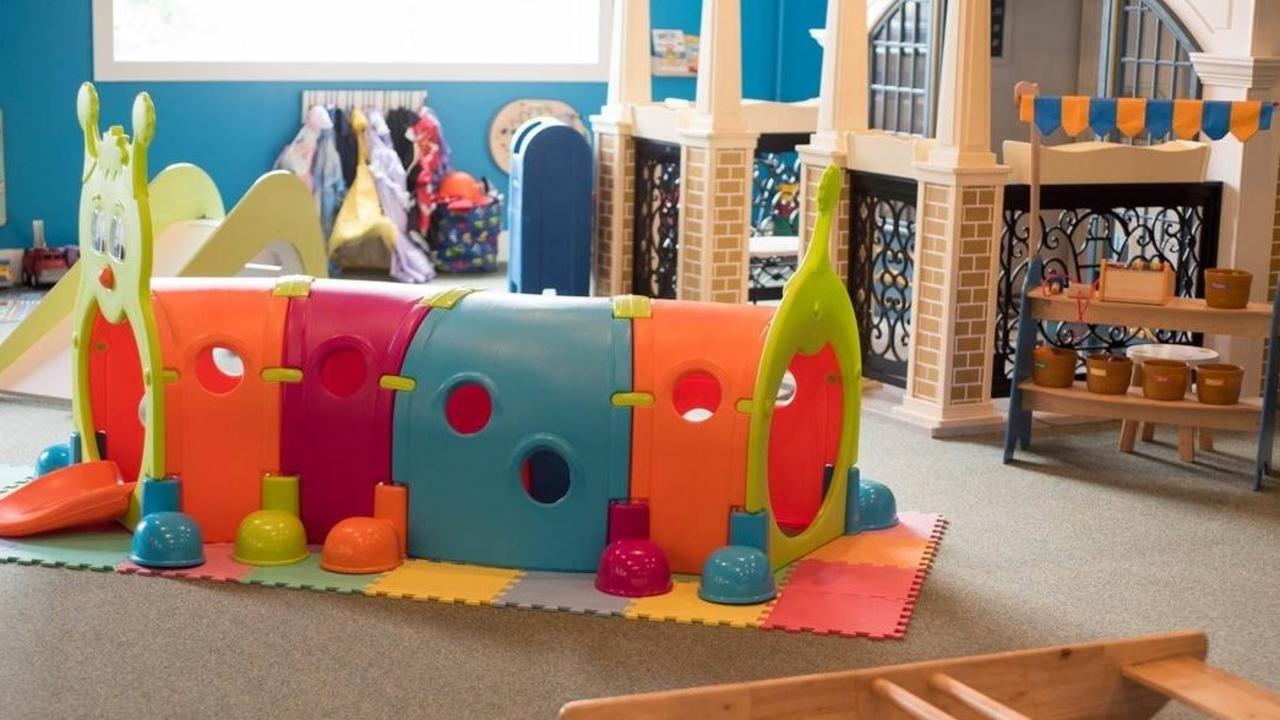

Articles
How To Start An Insulation Business
Modified: January 6, 2024
Learn how to start your own insulation business with our informative articles. Gain expert insights and practical tips to succeed in the industry.
(Many of the links in this article redirect to a specific reviewed product. Your purchase of these products through affiliate links helps to generate commission for Storables.com, at no extra cost. Learn more)
Introduction
Welcome to the world of insulation business! Starting your own insulation business can be a lucrative venture, considering the increasing demand for energy-efficient solutions and the growing emphasis on sustainable living. As a key player in the construction industry, insulation plays a crucial role in reducing energy consumption and maintaining comfortable indoor environments.
However, building a successful insulation business requires careful planning, industry knowledge, and effective implementation strategies. In this article, we will guide you through the essential steps to kickstart your insulation business and lay the foundation for long-term success.
Before diving into the details, it is important to note that the insulation market is vast and encompasses various types of insulation materials and techniques. From traditional fiberglass insulation to newer options like spray foam and cellulose, understanding the different options available will allow you to cater to a wider range of customer needs.
Now, without further ado, let’s explore the key steps involved in starting an insulation business and positioning yourself as a reliable and reputable provider in the industry.
Key Takeaways:
- Researching the insulation market, developing a comprehensive business plan, and ensuring legal compliance are crucial steps in laying the foundation for a successful insulation business. Understanding customer needs and industry trends is key to long-term success.
- Acquiring the right equipment, hiring and training skilled employees, and implementing effective marketing strategies are essential for delivering high-quality insulation services and building a loyal client base. Prioritizing safety, quality, and continuous improvement is key to industry success.
Read more: How To Start A Furniture Business
Researching the Insulation Market
Researching the insulation market is a crucial first step in starting your insulation business. Understanding the demand for insulation services, identifying target customers and market segments, and analyzing current industry trends and competitors will provide valuable insights to help you make informed business decisions.
One of the key aspects to consider is the demand for insulation services in your target area. Research the local construction industry and residential housing market to gauge the volume of insulation projects being undertaken. Are there any upcoming developments or renovations that could create a demand for insulation services? Identifying the level of demand will help determine the potential for growth and profitability.
Next, consider identifying your target customers and market segments. Insulation services can be required by both residential and commercial customers. Residential customers may include homeowners, property managers, or landlords, while commercial customers could include builders, developers, or facility managers. Understanding their specific needs and preferences will allow you to tailor your marketing messages and service offerings accordingly.
Furthermore, it is crucial to stay updated on the current industry trends and advancements. Insulation technology is constantly evolving, with new materials and techniques emerging to provide more efficient and environmentally friendly solutions. Stay informed about these developments to ensure that your business offers the latest and most effective insulation options to your customers.
Additionally, analyzing your competitors is essential to identify their strengths, weaknesses, and unique selling propositions. Research their pricing strategies, service offerings, and customer feedback to gain insights into their market position. This will help you differentiate your business and develop competitive advantages, such as exceptional customer service or specialized expertise.
Conducting thorough research on the insulation market will empower you to make informed decisions about your business strategy, including target markets, pricing, and marketing tactics. Keep in mind that this research should be an ongoing process to stay ahead of industry changes and adapt your business accordingly.
Developing a Business Plan
Developing a comprehensive business plan is a critical step in laying the groundwork for your insulation business. A well-crafted business plan will serve as a roadmap for success by outlining your business goals, strategies, and financial projections.
The first step in developing a business plan is to define your business goals and objectives. What is the mission of your insulation business? Are you aiming to become the go-to provider for residential customers, or do you have plans to expand into the commercial market? Clearly defining your goals will help you stay focused and aligned with your long-term vision.
Next, conduct a feasibility analysis to assess the viability and potential success of your business. Evaluate factors such as market demand, competition, and available resources. Identify your strengths, weaknesses, opportunities, and threats (SWOT analysis) to gain a comprehensive understanding of your business’s potential risks and advantages.
Creating a solid marketing strategy is crucial for attracting and retaining customers. Determine your target market segments and develop strategies to reach them effectively. This may include online marketing efforts such as search engine optimization (SEO), social media marketing, and targeted advertising. Additionally, consider attending industry trade shows and networking events to establish connections and generate leads.
Estimating startup costs and financial projections is a key aspect of your business plan. Research the costs of acquiring necessary equipment, setting up an office or warehouse space, and hiring employees. Project your initial expenses and forecast your expected revenue and profit margins. This financial analysis will help you determine the feasibility and sustainability of your business ventures.
Setting pricing and profit margins is an important decision that will impact your business’s profitability. Conduct market research to understand the average pricing for insulation services in your area. Consider factors such as material costs, labor, and overhead expenses when determining your pricing structure. Keep in mind that setting competitive yet profitable prices is key to attracting customers and maintaining a profitable operation.
Remember, a business plan is a dynamic document that should be regularly reviewed and updated as your business grows and environmental factors change. It serves as a guide for decision-making and provides a clear direction for your insulation business.
Legal and Licensing Requirements
Launching and operating an insulation business requires compliance with various legal and licensing requirements. Ensuring that you meet all necessary legal obligations will provide peace of mind and protect your business’s reputation and operations.
The first step is to register your business and choose a suitable business name. Check with your local government or business registration agency to determine the specific requirements and process for registering your business. Consider consulting with a legal professional to ensure that your chosen business name is unique and not infringing on any trademarks or existing businesses.
Obtaining the necessary permits and licenses is essential to operate your insulation business legally. Research the specific permits and licenses required in your jurisdiction, as they may vary depending on your location. Common permits may include general contractor’s licenses, environmental permits, or building permits. Failure to obtain the required permits can result in costly fines and may even lead to the closure of your business.
Understanding legal obligations and regulations is crucial to maintain compliance and avoid legal issues. Familiarize yourself with applicable laws and regulations related to safety standards, environmental protection, and labor practices. Stay updated on any changes in the industry or legal requirements to ensure that your business remains in compliance at all times.
Securing insurance coverage is another important aspect of protecting your insulation business. A comprehensive insurance policy will provide financial protection in the event of accidents, property damage, or legal liabilities. Obtain liability insurance, workers’ compensation insurance, and business property insurance to safeguard your business and assets. Consult with an insurance specialist who specializes in coverage for construction-related businesses to ensure that you have suitable and adequate coverage.
Keep in mind that legal and licensing requirements may vary based on your location, so it is essential to research and comply with the specific regulations in your area. By adhering to these requirements, you can operate your insulation business lawfully and build a solid foundation for success.
Acquiring Equipment and Supplies
In order to successfully run your insulation business, it is crucial to acquire the necessary equipment and supplies for insulation installation. Identifying the required equipment, researching and selecting quality suppliers, determining optimal inventory levels, and evaluating equipment financing options are all important considerations in this process.
The first step is to identify the required equipment for insulation installation. This may include items such as insulation blowers, spray foam machines, air compressors, safety gear, and various hand tools. Assess your business needs and the type of insulation services you plan to offer to determine the specific tools and equipment that are essential for your operations.
Researching and selecting quality suppliers is crucial to ensure that you are using reliable and high-quality materials and equipment. Look for suppliers with a good reputation in the industry, and consider factors such as product quality, pricing, delivery reliability, and customer support. Building strong relationships with suppliers will help ensure a steady supply of materials and equipment for your business.
Determining optimal inventory levels is important to avoid excess or insufficient stock. Conduct a thorough analysis of your expected demand and projected projects to estimate the quantity of materials needed. By maintaining an appropriate inventory, you can minimize costs and inefficiencies while ensuring you have the necessary supplies readily available.
When it comes to financing the acquisition of equipment, consider evaluating equipment financing options. Depending on your financial situation and preferences, you may choose to purchase the equipment outright, lease it, or explore financing options offered by equipment manufacturers or financial institutions. Carefully consider the costs, terms, and conditions of each financing option to make an informed decision that aligns with your business’s financial goals.
By strategically acquiring the necessary equipment and supplies, you can ensure that your insulation business is well-equipped to meet the needs of your clients effectively and efficiently. Regularly evaluate and update your equipment and supplies as technologies and industry standards evolve to maintain a competitive edge in the market.
Read more: How To Start A Woodworking Business
Hiring and Training Employees
Hiring and training the right employees is crucial for the success of your insulation business. Building a skilled and dedicated team will ensure seamless operations and deliver high-quality services to your clients. To effectively hire and train your employees, consider the following steps:
Identifying staffing needs is the first step towards building a strong workforce. Evaluate the volume of work and the types of projects you expect to undertake to determine the number of employees needed. Consider roles such as insulation installers, project managers, sales representatives, and administrative staff.
Develop job descriptions and qualifications for each position to ensure that you attract candidates with the necessary skills and experience. Clearly outline the responsibilities, qualifications, and any certifications or licenses required for each role. This will help you streamline the recruitment process and find candidates who meet your specific needs.
Implement a recruitment process that includes advertising job openings, conducting interviews, and checking references. Utilize online job boards, industry-specific platforms, and social media to reach a wider pool of candidates. Ensure that the recruitment process is thorough and efficient, allowing you to select the best fit for your team.
Provide comprehensive training programs to ensure that your employees are equipped with the necessary knowledge and skills. This may include training on insulation installation techniques, safety protocols, customer service, and equipment operation. Investing in ongoing training will help your team stay up-to-date with industry advancements and provide excellent service to your clients.
Establish employee performance evaluation systems to monitor and assess individual and team performance. Regularly meet with your employees to provide feedback, address any concerns, and set goals. Implementing performance evaluations will not only motivate your employees but also provide an opportunity for continuous improvement and growth.
Remember, a strong team is the backbone of your insulation business. Hiring and training employees who align with your business values and goals will contribute to the success and growth of your company.
Research your local market to understand the demand for insulation services. Identify your target customers and their specific needs to tailor your business approach.
Marketing and Advertising Strategies
Effective marketing and advertising strategies are essential for growing and expanding your insulation business. By implementing the right tactics, you can increase brand awareness, attract new customers, and build strong relationships within the industry. Consider the following strategies to promote your business:
Creating a professional brand identity is the foundation of your marketing efforts. Develop a logo, brand colors, and a consistent visual style that reflects the professionalism and quality of your insulation services. This will help your business stand out and leave a lasting impression on potential customers.
Developing a user-friendly website and establishing a strong online presence is vital in today’s digital age. Your website should provide essential information about your services, contact details, and customer testimonials. Optimize your website for search engines by incorporating relevant keywords and ensuring fast loading times. Provide a seamless user experience to encourage visitors to engage with your business.
Implementing local advertising campaigns can help you reach potential customers in your target market. Consider placing ads in local newspapers, magazines, and directories. Sponsor local events or community initiatives to enhance brand visibility and demonstrate your commitment to the local community.
Utilizing social media platforms can significantly expand your reach and engage with your target audience. Create profiles on popular platforms such as Facebook, Instagram, and LinkedIn, and regularly update them with informative and engaging content. Share before-and-after project photos, offer insulation tips, and respond promptly to inquiries and reviews.
Building relationships with contractors and builders is crucial to generating referrals and building a strong network within the industry. Attend industry events, join professional associations, and actively engage with contractors and builders in your area. Offer educational workshops or seminars to showcase your expertise and build trust within the industry.
Remember to track the effectiveness of your marketing efforts by monitoring metrics such as website traffic, social media engagement, and lead conversion rates. This will help you identify what strategies are working and make informed decisions for future marketing campaigns.
By implementing these marketing and advertising strategies, you can effectively promote your insulation business, attract new customers, and build a strong reputation in the industry.
Building a Client Base
Building a solid client base is essential for the growth and success of your insulation business. By implementing effective strategies, you can attract new clients, foster strong relationships, and generate repeat business. Consider the following steps to build and maintain a loyal client base:
Networking with industry professionals is an effective way to connect with potential clients and establish credibility in the industry. Attend industry conferences, trade shows, and networking events to meet builders, contractors, and other professionals in the construction field. Build relationships and actively engage in discussions to create awareness about your insulation services.
Establishing partnerships with contractors and builders can lead to a steady stream of referrals and repeat business. Reach out to local contractors and builders and offer to collaborate on projects. By providing high-quality insulation services, you can build trust and become their go-to insulation provider.
Generating leads through various channels is crucial for driving new business. Utilize online platforms such as your website, social media, and online directories to showcase your insulation services and generate leads. In addition, consider traditional marketing tactics such as direct mail campaigns, targeted advertisements, and local business partnerships to expand your reach and attract potential clients.
Providing exceptional customer service and satisfaction is key to building long-term client relationships. Communicate clearly, respond promptly to inquiries, and address any concerns or issues that arise. Strive to exceed client expectations by delivering high-quality workmanship and maintaining a clean and professional job site.
Implementing referral programs can encourage satisfied clients to refer your services to others. Offer incentives such as discounts, gift cards, or referral bonuses to clients who refer new customers to your business. By actively seeking referrals and rewarding clients for their recommendations, you can tap into a powerful source of new leads.
Remember to regularly reach out to your existing clients to maintain relationships and foster ongoing loyalty. Send personalized thank-you notes, follow up after project completion, and stay in touch through newsletters or email updates. Building strong connections with your clients will lead to repeat business and positive word-of-mouth referrals.
Building a client base takes time and effort, but by focusing on networking, partnerships, lead generation, exceptional customer service, and referral programs, you can establish a strong foundation for long-term success in the insulation industry.
Managing Operations and Finances
Managing the operations and finances of your insulation business is crucial for its long-term success. By implementing effective strategies and practices, you can ensure smooth workflow, maintain financial stability, and make informed decisions. Consider the following steps to effectively manage your operations and finances:
Setting up an efficient workflow and project management system is essential for keeping projects on track and meeting client deadlines. Develop a standardized process for insulation installation, including scheduling, material management, and quality control. Utilize project management tools to streamline communication, track progress, and allocate resources effectively.
Monitoring and optimizing productivity is key to maximizing efficiency and profitability. Regularly evaluate your operations to identify potential bottlenecks or areas for improvement. Streamline processes, provide training to your team, and leverage technology to automate repetitive tasks. Continuously monitor and adjust workflows to ensure optimal productivity.
Managing cash flow and budgeting is crucial for financial stability. Implement proper cash flow management practices by monitoring your income and expenses, and ensure that you have enough working capital to cover operational costs, such as payroll and material purchases. Develop a budget that includes fixed and variable costs, allowing you to make informed financial decisions and allocate resources effectively.
Implementing effective bookkeeping and accounting practices is essential to maintain accurate financial records. Consider utilizing bookkeeping software or hiring a professional accountant to manage your financial transactions, record expenses, and generate financial reports. Proper accounting practices will help you track cash flow, manage tax obligations, and make informed financial decisions.
Evaluating business performance is crucial to identifying areas for improvement and making necessary adjustments. Monitor key performance indicators (KPIs) such as revenue growth, profitability, customer satisfaction, and project success rate. Regularly review financial reports and analyze data to identify trends and opportunities for growth. Use this information to make informed strategic decisions and adjust your business strategies as needed.
Remember to regularly assess and adjust your operations and financial management practices as your business grows and evolves. Stay updated on industry advancements and best practices to ensure that you maintain a competitive edge and create a sustainable and profitable insulation business.
Read more: How To Start A Picnic Business
Ensuring Quality and Safety Standards
Ensuring quality and safety standards is paramount in the insulation business. By adhering to industry standards and regulations, training employees on safety procedures, conducting regular quality control inspections, addressing customer concerns promptly, and staying updated on industry advancements, you can build a reputation for excellence and maintain customer satisfaction. Consider the following steps to prioritize quality and safety:
Adhering to industry standards and regulations is essential for delivering high-quality insulation services. Familiarize yourself with local building codes, safety regulations, and industry best practices. Ensure that your insulation installations meet or exceed these standards, providing your clients with effective and long-lasting solutions.
Training employees on safety procedures is crucial to minimize the risk of accidents and injuries. Provide comprehensive safety training to your employees, covering topics such as proper handling and disposal of insulation materials, working at heights, and the use of personal protective equipment (PPE). Regularly review safety protocols and reinforce the importance of a safety-first mindset.
Conducting regular quality control inspections helps maintain the integrity of your insulation installations. Establish a systematic process to inspect completed projects for any issues or deficiencies. Implement corrective measures promptly to ensure that your clients receive the highest quality workmanship and satisfaction.
Addressing customer concerns and issues promptly is essential for building trust and maintaining customer satisfaction. Establish a clear communication channel for customers to voice their concerns or provide feedback. Respond promptly and professionally, addressing their concerns and finding solutions. Taking the extra step to ensure customer satisfaction can lead to positive reviews, referrals, and repeat business.
Staying updated on new industry advancements and best practices is crucial to provide cutting-edge insulation solutions. Attend industry conferences, workshops, and seminars to stay informed about the latest technologies, materials, and installation techniques. Building relationships with manufacturers, suppliers, and industry experts can help you stay ahead of the curve and offer innovative solutions to your clients.
By prioritizing quality and safety, you can establish a reputation for excellence in the insulation industry. This will not only attract more customers but also build long-term relationships based on trust and satisfaction.
Expanding and Growing Your Insulation Business
To achieve long-term success in the insulation industry, it is important to continually assess opportunities for expansion and growth. By strategically expanding your business, offering additional services or product lines, building long-term customer relationships, exploring new market segments or geographic areas, and continuously adapting to stay competitive, you can position your insulation business for sustainable growth.
Assessing opportunities for business expansion involves evaluating the market demand and potential growth areas. Stay updated on industry trends and changes, including advancements in insulation materials and techniques. Consider expanding your services to include related offerings such as air sealing, energy audits, or retrofitting. Conduct market research and seek feedback from current and potential customers to identify areas where you can expand and differentiate your business.
Offering additional services or product lines can help attract new customers and increase revenue streams. For example, you could offer insulation removal and replacement services, insulation upgrades for existing structures, or energy-efficient insulation solutions. Consider the needs and preferences of your target market and explore opportunities to provide comprehensive insulation solutions.
Building long-term customer relationships is crucial for sustainable growth. Focus on delivering exceptional customer service, exceeding expectations, and maintaining open lines of communication. Implement customer loyalty programs or referral incentives to encourage repeat business and word-of-mouth recommendations. By building strong relationships, you can cultivate a loyal customer base and benefit from repeat business and positive referrals.
Exploring new market segments or geographic areas can open doors to untapped opportunities. Conduct market research to identify potential markets where your insulation services could be in high demand. Consider expanding your operations to nearby cities or regions, or targeting new customer segments such as commercial or industrial clients. Tailor your marketing efforts to meet the specific needs of these new markets.
Continuous adaptation and evolution are necessary to stay competitive in the insulation industry. Keep abreast of new technologies, materials, and installation techniques. Invest in ongoing professional development and encourage your team to stay updated on the latest industry advancements. Embrace innovation and adapt your business strategies to meet changing customer preferences and market demands.
Expanding and growing your insulation business requires careful planning, strategic decision-making, and a commitment to excellence. By assessing opportunities for expansion, diversifying your offerings, building strong customer relationships, exploring new markets, and evolving with the industry, you can position your insulation business for long-term success and profitability.
Conclusion
Starting and growing an insulation business requires careful planning, hard work, and a commitment to delivering high-quality services. By following the steps outlined in this article, you can lay the foundation for a successful insulation business and position yourself as a reputable provider in the industry.
Thoroughly researching the insulation market and understanding the demand for insulation services will enable you to identify your target customers and market segments. Developing a well-crafted business plan will guide your decisions and provide a roadmap for success.
Complying with legal and licensing requirements and securing the necessary permits and licenses will ensure that you operate your business legally and avoid any potential legal issues. Acquiring the right equipment and supplies, as well as hiring and training a skilled team of employees, will allow you to deliver top-notch insulation services.
Implementing effective marketing and advertising strategies will help you build a strong client base and establish your brand presence. Providing exceptional customer service, maintaining quality and safety standards, and constantly adapting and evolving will cultivate long-term relationships with customers and keep you competitive in the industry.
As your insulation business continues to grow, you can explore opportunities for expansion, offer additional services or product lines, and explore new markets or geographic areas. Continuously assessing your operations and finances, as well as staying updated on industry advancements and best practices, will ensure that your business remains efficient, financially stable, and innovative.
In conclusion, starting and growing an insulation business requires dedication, industry knowledge, and a commitment to excellence. By following the steps outlined in this article and remaining focused, you can build a successful insulation business that meets the needs of your customers, contributes to a more energy-efficient future, and provides long-term profitability and growth.
Frequently Asked Questions about How To Start An Insulation Business
Was this page helpful?
At Storables.com, we guarantee accurate and reliable information. Our content, validated by Expert Board Contributors, is crafted following stringent Editorial Policies. We're committed to providing you with well-researched, expert-backed insights for all your informational needs.














0 thoughts on “How To Start An Insulation Business”